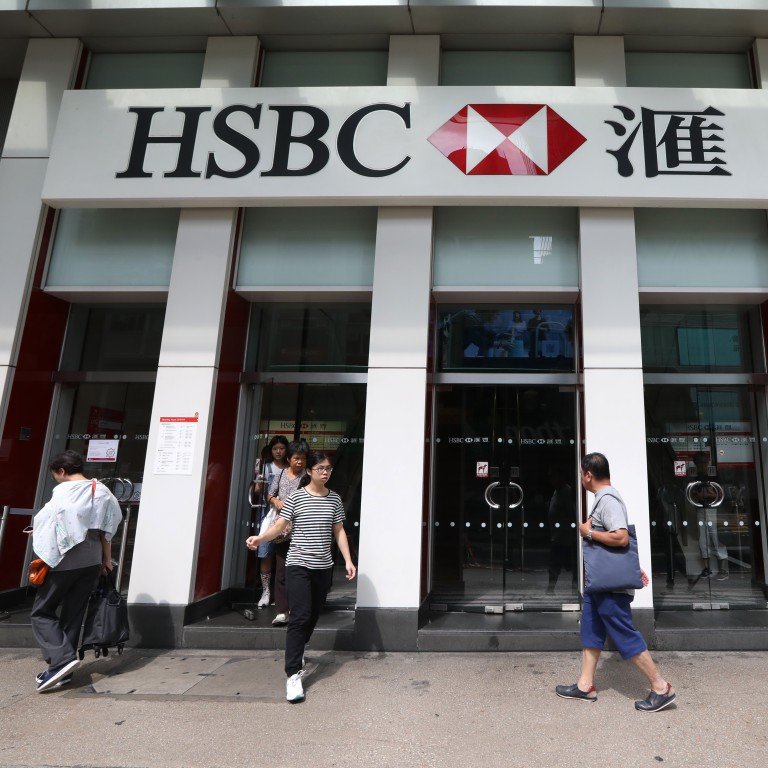
HSBC insists it does not need a virtual bank licence in Hong Kong, invests US$2.2 billion in raising digital banking game
- Hong Kong’s largest lender has spent 17 per cent more in the first half this year to improve its digital capabilities, says the bank’s global head of innovation Andrew Connell
- Bank’s investment in robotics and AI has helped to speed up and improve its customer services
Hong Kong’s largest bank has spent US$2.2 billion globally on growth and digital enhancements in the first half of this year, 17 per cent more than a year earlier, according to Andrew Connell, global head of partnership development and innovation, retail banking and wealth management at HSBC.
“HSBC is very keen on investment in our digital platform and talent. We have launched our PayMe app in Hong Kong, which has been very popular. At present, 90 per cent of our transactions in Hong Kong are conducted through a digital platform,” Connell told the South China Morning Post in a telephone interview.
HSBC is the only note-issuing bank in the city which has not applied for a virtual bank licence. The other two – Standard Chartered Bank and Bank of China (Hong Kong) – have both set up joint ventures to launch virtual banks.
Hong Kong’s appeal as a virtual banking hub is about to be put to the test as first online lenders arrive
“HSBC has invested significantly in its digital banking platforms. There is nothing a virtual bank can do which we cannot offer. We do not believe we must have a virtual bank licence to operate digital banking services,” said Andrew Eldon, head of digital banking for Hong Kong office at HSBC.
While the bank is cutting headcount globally, it has hired 1,000 staff for its Asia-Pacific and Hong Kong digital teams since Connell joined the bank five years ago.

Last week HSBC released a report titled “Banking of the Future: Finance in the Digital Age”, outlining its vision on technology development, which shows the bank not only needs physical branches to serve customers but also robotics and artificial intelligence.
Globally, HSBC has 1,600 robotic devices which processed 11.5 million transactions last year, a tenfold increase from 2017. This has helped the bank to speed up account opening and loan approvals process to better serve its customers.
In Canada, the HSBC report said mortgage loan applications can be approved the same day while it needed 22 days to process if it was all done by humans.
In Hong Kong, credit card approval can be done instantly, instead of up to six days previously.
“AI is an important area for us to invest in. Banking services which adopt AI technology can be quicker and more accurate than through traditional processes,” Connell said. “Digital banking services will allow customers to be able to carry out a wide range of banking transactions with no need to go to branches,” though he noted branches are still important, particularly for more complex transactions.
What to expect as launch of Hong Kong virtual banks nears
A report issued by professional services company Accenture in September said that as much as 15 per cent of banks’ global payments revenue, or US$280 billion, is likely be displaced by the growth of digital payments and competition from non-banks, as payments become more instant, invisible and free.
It said global payments revenue is likely to grow at 5.5 per cent a year from US$1.5 trillion in 2019 to more than US$2 trillion by 2025. And only banks that change their business models to adopt the latest technologies and focus on providing value-added services to customers will capture a share of the US$500 billion in incremental revenue growth.
“Rather than being at the forefront of the new wave of the booming payments market, banks are feeling the heat from new competition and seeing their margins squeezed,” said Gareth Wilson, Accenture’s global payments lead.

